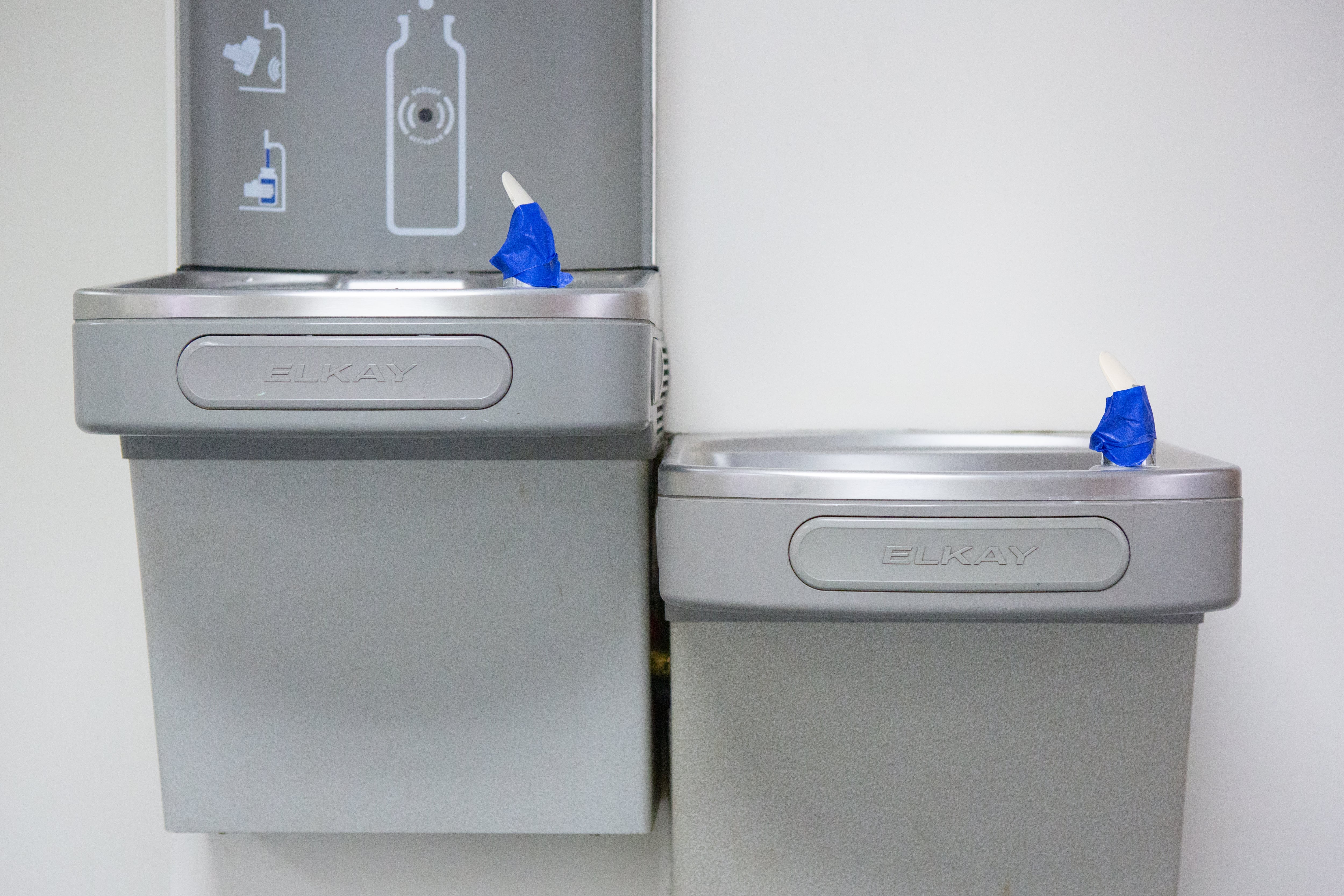Newark Public Schools kept all water fountains shut off last school year, as a way to curb spreading the coronavirus when students returned to in-person learning.
Teachers, staff, and at times, the district, bought cases of water for classrooms, and students would bring water bottles from home or buy some from vending machines. Sometimes, the teachers and students said, they refilled bottles at bathroom sinks, the only source of water they could find in their school buildings.
District officials promised this school year would be different.
But one month in, some students say they still don’t have access to functioning water fountains. Parents say they send their children to school with bottles of water for the day.
“I send my child with a big gallon to lug around with her so she can have water,” said Nadirah Brown, mom of a student at Harriet Tubman Elementary School. “There’s no bottled water provided nor water fountains for our children to drink from.”
At a school board meeting in March, Superintendent Roger León’s presentation included a slide that stated the district would “continue installation of contactless water fountains with a completion date by start of next school year.”
Five months later, at an August meeting, board member Josephine Garcia said the district hadn’t yet started installing the contactless water fountains.
“The district will begin the installation of contactless water fountains shortly,” Garcia said, reading from the minutes of an Aug. 17 operations committee meeting.
Those minutes also stated that “all school drinking sources will be turned on in time for school opening.”
State rules require school districts to ensure students have access to safe drinking water.
León said last year the district kept the water fountains off as a COVID-19 precautionary measure to prevent spread of the virus. However, state and federal guidelines did not mention turning off water fountains when schools resumed in-person learning.
Part of the reason the water fountains remained shut off, it turned out, was a delay in testing water sources for lead and getting water filters replaced, Chalkbeat Newark reported last year.
As of mid-August, the district had completed testing for lead at 57 schools, and planned to test 12 remaining schools before the start of the school year, meeting minutes show.
School Business Administrator Valerie Wilson said Sept. 27 that more than 3,000 drinking water outlets had been tested for lead and turned back on.
But, she added, “As we turned them on we found out that certain components of our plumbing system caused the fountains to fail or be inoperable,” she told the school board.
The district fixed those problems, retested the fountains, and put them back into service, she said.
“There are no schools with fountains inoperable at this point in time,” she said. “All schools have fountains on.”
However, that is not what students, parents and staff have told Chalkbeat.
As the school year gets underway, help us tell this story accurately and thoroughly by sharing what you’re experiencing in your schools when it comes to access to water by filling out the form below.
If you are having trouble viewing this form, please go here.
Catherine Carrera is the bureau chief for Chalkbeat Newark, covering the city’s K-12 schools with a focus on English language learners. Contact Catherine at ccarrera@chalkbeat.org.





